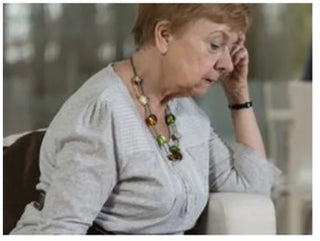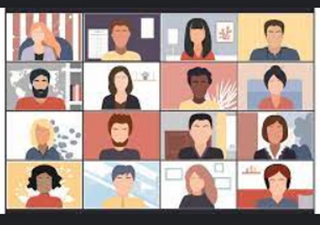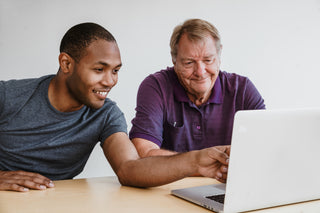
Depression and Low Mood
Depression involves persistent feelings of sadness for weeks or months, rather than just a few days. Psychologists can make distinctions about its intensity and impact: mild depression has some impact on daily life; moderate depression has a significant impact on daily life, while severe depression makes it very challenging to get through daily life.
- Depression is very prevalent with around 1 in 6 (16%) adults experiencing moderate to severe depressive symptoms (census 2021 data); this is similar to rates found in summer 2021 (17%) but higher than pre-pandemic levels (10%).
- depression can also be more prevalent in certain groups incl women (19%), those with long-term illness (59%), unpaid carers (37%), and young adults aged 16 to 29 years (28%).
Depression is not a sign of weakness or something you can "snap out of" by "pulling yourself together". Instead it is a prevalent, diagnosable and treatable health condition, such that full recovery is quite possible.

Symptoms
Symptoms of depression are varied, but can include:
- continuous low mood or sadness;
- feeling hopeless and helpless; being tearful
- feeling guilt-ridden, irritable and/or intolerant of others
- limited motivation and energy, even for everyday tasks; moving more slowly than usual
- taking part in fewer social activities and avoiding contact with friends; limited interest or enjoyment for hobbies
- appetite problems which can include loss of appetite, or over-eating in an attempt to counteract negative feelings
- sleep disruption and disturbed sleep patterns, including difficulties getting off to sleep or early morning waking
- difficulties concentrating, and memory problems

Treatment towards better
Depression is highly treatable with cognitive behaviour therapy (CBT), sometimes alongside anti-depressant medicines. The CBT therapist aims to alleviates emotional distress by working collaboratively with clients to break problems into smaller parts and troubleshooting these. The latter can include identifying and ultimately changing maladaptive thinking and thoughts.
A first step even before therapy begins is selfcare. Those feeling down can benefit by making lifestyle changes such as getting more exercise, cutting down on alcohol, stopping smoking and eating more healthily. Self-care and compassion are also vital because symptoms can improve when we look after ourselves, and treat ourselves with kindness, care and respect (for selfcare ideas see tab on DAKtivism).
CBT Supports for Depression and Low Mood
- Attend our low-cost, fun and informal Stress Busters community CBT course for information and prevention if not support (stress is an umbrella word for lots of mood states incl low mood). Please note: this course is not suitable for anyone in crisis
- Alternatively, access 1-1 CBT therapy via phone or video. Get in touch for a brief chat in confidence (FREE). From there you may be invited to have a 1-1 CBT assessment / getting-to-know-you session (90 mins) and then a course of CBT (5 sessions at a time).
- Stress Cafe is an optional follow-up booster session. It is open to those who have completed Stress Busters with us or our 1-1 CBT.




